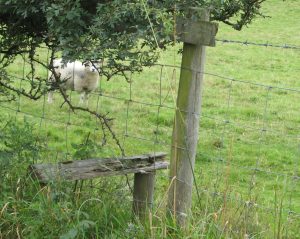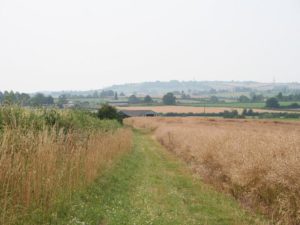Support us from £3/month
We deal with almost 1000 cases a year assisting communities, groups and individuals in protecting their local spaces and paths in all parts of England and Wales. Can you help us by joining as a member?
We have called on the Welsh government to ensure that the payment of public money under the new Sustainable Land Management scheme will benefit the public who wish to gain access to Wales’s farmed land. The society has responded to the Welsh government’s consultation paper Sustainable Farming and our Land.
The society wishes to see clear statements in the new policy setting out how public access will be maintained and improved.

Land managers who have obstructed paths on their land should not receive grants
The creation of permanent new access must be encouraged, for example providing access from publicly-accessible places to viewpoints or ancient monuments, or providing meaningful circular paths for local people. Such new access should be approved by an independent panel to ensure it provides value for money.
Payments should be in return for the delivery of outcomes which are above and beyond the requirements of regulation, ie farmers should not be paid merely to keep the public paths on their land in order which the law requires them to do in any case. Payments could be made for improving public access along existing rights of way, for example by mowing the route, and leaving cross-field paths undisturbed by ploughing.
There should be independent monitoring of the state of paths on a farmer’s land, and a farmer who is abusing public paths must not receive payment.
Access can be improved by collaboration across several farms.
The scheme must be made available on common land in such a way that it recognises the particular circumstances of such land. This may require specific legislation to enable a majority of common rightholders together to take decisions to enter into a contract which binds a small number of dissenters.
The special circumstances of common land demand that a dedicated advisory service should be provided to give advice to commoners and common owners. The advisers should be trained in the promotion of public access.

Image: Bob Embleton – Mown footpath to Trehumfrey Farm
Says Hugh Craddock, one of our case officers: ‘While we are pleased that the Welsh government recognises the importance of public access as part of the scheme, we are concerned that its proposals are woolly. We believe that the government must make it clear that it will only pay public money where the public will truly benefit from better paths and access to Wales’s glorious countryside.’
